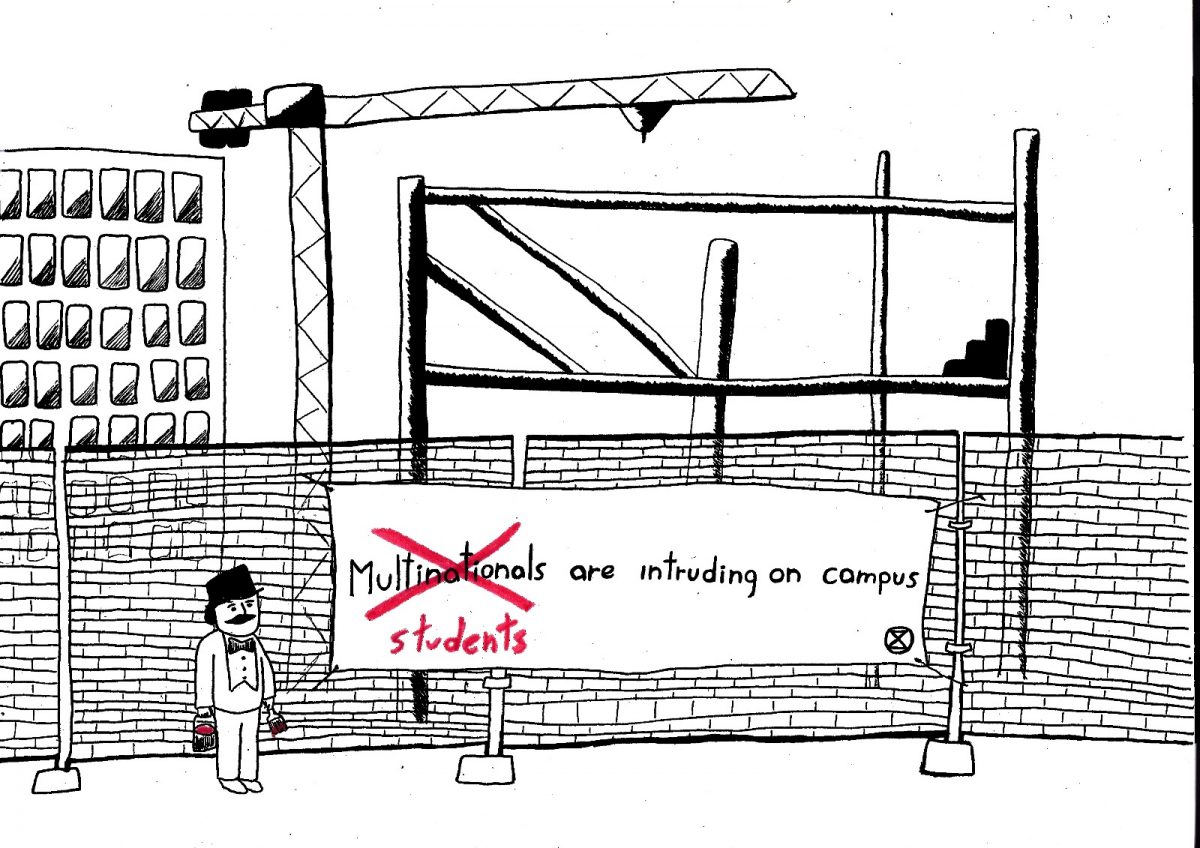Five WUR students have been given a 225 euro fine and a two-week conditional prison sentence for trespassing while protesting the prominent position given to corporations at WUR.
It is nearly half a year since a group of students blocked the construction site of the €50 million Upfield Food Science Center. During the protest five of these students climbed a crane on the construction site and locked themselves to the structure. They were violently arrested a few hours later as seen in the video below. Warning the video contains police violence.
Multinationals on campus
Upfield will be the latest corporation to build a research center on the Wageningen campus, alongside Unilever and Friesland Campina. This is in addition to the many off campus research centers of other corporate players, such as Bayer-Monsanto who are based between Rhenen and Wageningen.
At a panel discussion hosted by the RUW foundation and Otherwise it became clear that there are diverging opinions on the presence of companies on campus. Some say that their presence is vital to apply research in society and industry, while others believe that universities should be morally and intellectually independent from any economic interest.
The latter is especially the case for multinational corporations who already hold a disproportionate amount of power in society. A recent article published in the Jester, describes how research at WUR was funded by a lobby group of Bayer-Monsanto, Syngenta and others, and used to weaken the farm-to-fork strategy of the European Union. Examples such as this testify to the disproportional influence these corporations have on research at WUR.
The court ruling
A court ruling of this magnitude for taking peaceful direct action was not expected. In court the lawyer of the activists stated: “You are allowed to demonstrate. That right is protected on all sides. This is a peaceful demonstration. No destruction has been caused”.
According to the judge however, they should not have been allowed on the grounds, not even on the basis of freedom of expression. The executive board echoed this point telling us that they value the freedom of expression and the right to demonstrate at the university, but disapprove of any illegal and dangerous activities associated with protests.
The problem here is that the illegality of protest is an essential characteristic of civil disobedience and a fundamental strategy for social change used by activists. “The conditional prison sentence, which is valid for 2 years, is silencing the students, and basically means a prohibition of demonstrating” said XR Wageningen on a recent social media post.
WUR’s ties to industry has been an ongoing debate for years now and does not seem to be quietening down any time soon. The executive board reassured us that this is a focus of their upcoming dialogues but illegal protest on the topic is clearly not welcome by them. Despite this, it is still a necessary pathway to change. For now, the student activists rely on appealing the sentence and continued resistance around the topic.
Writers at the Jester are continuing to research and write about our university’s shady links to industry, and we are always happy to have help. If this is something that interests you email us at thejester.wageningen@gmail.com .

